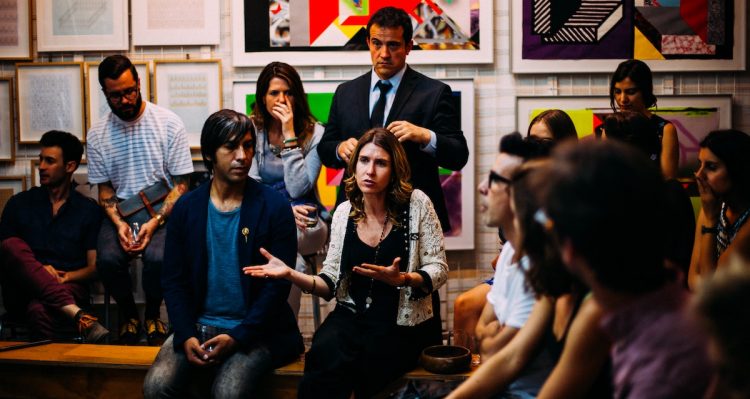When Ideas Matter: Speeches for an Ethical Republic is a collection of essays published by Michael D. Higgins, who has served as President of Ireland since November 2011. Higgins covers a broad spectrum of topics ranging from the Irish Diaspora and the Famine, to Culture, Economics, and an especially poignant chapter titled, “Remembering the Past: Commemoration and Forgiveness.”
Higgins is an unusual politician. He is a poet, sociologist, and former professor, not a career politician, and he uses his speeches—very thoughtful speeches—to lay the groundwork for his various policy positions.
Of course, I have not met Higgins nor do I agree with all of his conclusions. But I respect his courage to speak to and thoughtfully engage such topics as the Troubles, Migration, the Famine and Globalization.
And when is the last time one of our Senators, Representatives or any President spoke about Peace, Forgiveness, and Reconciliation? I am moved by Higgins, because I believe that ideas do matter. Good ideas inform good public policy, and he has the courage to thoughtfully engage these things that matter most.
A few weeks ago, I was invited by one of the regional Tea Party gatherings to speak at their meeting. They had read a piece I published in December 2018 titled “A Prescriptive Post-Mortem for Iowa.” The purpose of the piece was to reflect on Jefferson’s conviction that a “well-informed electorate is a prerequisite for democracy” in juxtaposition to candidates hiding from public scrutiny.
In this case, the 2018 Republican and Democrat candidates for Governor chose to host their last public debate at 8:00 a.m. on a Sunday morning at a television station that only reached about 10% of our state.
I speak to a lot of groups as a University President including Churches, the Rotary, Lions, Kiwanis Clubs; the Chamber of Commerce, student groups, youth groups, and k-12 teachers and counselors. But never did I, as a University President, expect to be invited to speak at a gathering of the Tea Party. And rather than the stereotype narrated by sectors of our national media, I was warmly welcomed and respectfully treated by citizens from all walks of our life together—farmers, teachers, doctors, parents and grandparents.
After listening to me yammer on for over 60 minutes (their choice, not mine!), we engaged in a thoughtful exchange of questions, answers, some follow up questions, and personal experiences. Afterwards, several attendees mingled around and wanted to converse a bit more. In all honesty, I was moved by them. I drove home that evening very proud of the fact that I am privileged to live in a place where citizens take their responsibility seriously—whatever their political inclination may be. Which brings me back to the gubernatorial debate.
When I asked those in attendance how many of them expected our legislature or Governor to move the needle on the two biggest policy concerns of the last election—Education and Brain Health—not one hand was raised. Of the 30 or 40 people gathered that evening, not one of them had any expectation that their lives, or the lives of their children or grandchildren, would be improved by those whom we have elected—to serve us.
Ideas matter, and there are plenty of ideas in places like the Country Junction Restaurant where the Dyersville Tea Party meets every month. They are not all good ideas, and they are not all bad ideas. But these citizens are informed, caring, and quietly motivated to keep pressing on until such a day as when their ideas are taken seriously.
Jefferson is smiling—somewhere.











Maybe this can serve as a small example of how thoughtful people can gather to discuss ideas to make a better community. We certainly need more civil discourse about the major issues of the day.
Amen Rick! Listening is one of the greatest gifts we can give someone, but it’s not easy. I’ve been trying to master that art for 60 some years now!
Rick,
Thanks for engaging and thanks for what you do for UD!
Jeff
Jeff,
Thank you for your thoughts and also your perspective of reaching out to people that perhaps would have a different perspective than what you might think. One of the challenges that I see today is that many people will say they are inclusive, but they are inclusive as long as you agree with their point of view.
Usually people do not want to hear a perspective on something that the disagree with.
This could include theological differences, political differences and etc. I have never seen our Country as divided as it is at this moment.
Blessings!
Jim Russell
Thank you Jeff. Just started listening to podcast great topics and also enjoy ready commits from other listeners.